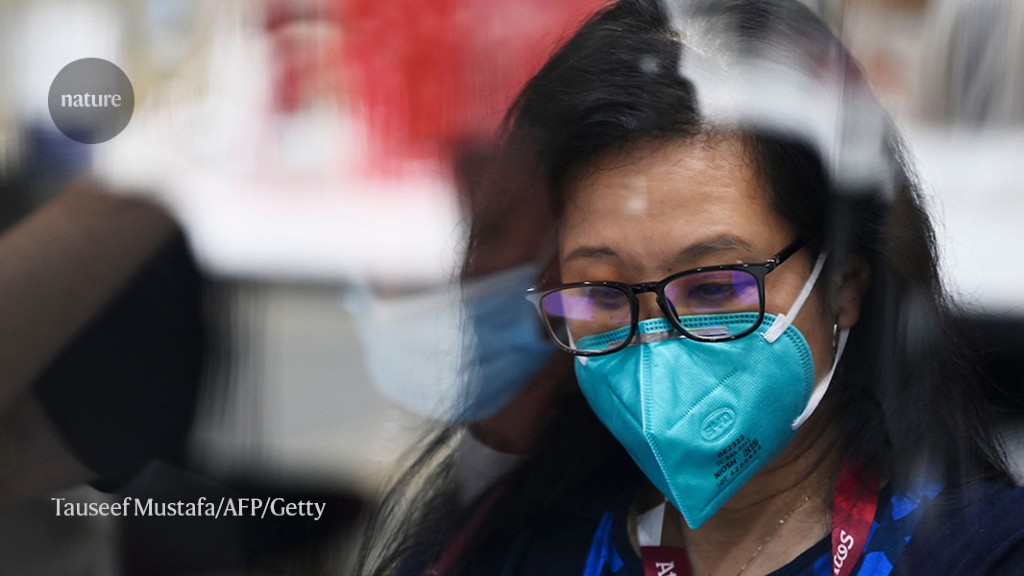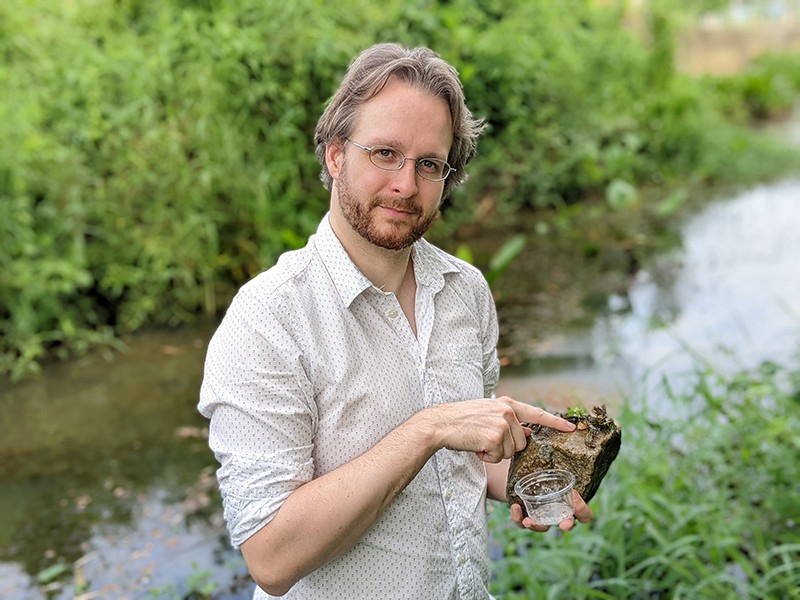this is how i can discuss science with you
In 1986, when I was 18 months old, pediatricians told my parents that I had profound deafness and would remain unable to speak and would have to spend my life in an institution for the disabled. But even at that young age, academia affected my life. Instead of accepting this prediction, my father, Ingo Meuthen, a hematologist and oncologist, found international publications describing how to teach children like me to read and talk on lips. So, instead of learning sign language, I finally became able to read lips and speak both German and English.
Many children with disabilities are rejected by the general population. This can motivate them to work especially hard to be accepted and recognized later in life.1. My elementary school teachers, for example, warned my parents that my disability meant that I was not fit to pursue higher education. But, thanks to the support of my parents and my reliance on textbooks rather than teachers, I graduated with a degree in biology from the University of Bonn, Germany. Immediately after, I stayed in college to pursue a PhD in evolutionary ecology with a focus on phenotypic plasticity, while working intermittently at odd jobs outside of academia, such as writing for journals and assisting in communications. science through public exhibitions.
My applications for jobs outside of academia are routinely met with disdain by interviewers after they realize I can’t take phone calls. This is never a problem in academia (see “Tips for helping hearing-impaired scientists”) – I find my colleagues readily adopt alternative methods of communication, such as texting or talking face-to-face so that I can read lips.
The acute visual perception that partly compensates for my hearing loss led me to observe animal behavior in my university studies. Evolutionary ecologist Theo Bakker, my thesis supervisor, and his student Timo Thünken used one-on-one communication to guide me. They sometimes wrote hard-to-lip words.
Some parts of academia are less appealing to lipreaders like me. If left unresolved, they can become a career bottleneck for hearing impaired researchers2and thus limit the academic diversity that benefits science.
Group meeting issues
Regular group meetings, intended to promote scientific exchanges, remain a challenge for me. I cannot follow the discussions with frequent changes between speakers. It helps that no one judges my performance or expects me to be fully informed afterwards.
Supervisors of hearing-impaired researchers can compensate for this problem by designating someone to take minutes of meetings and email them shortly after. After completing my PhD, I accepted a postdoctoral position at the University of Saskatchewan in Saskatoon, Canada. Here I learned that native English speakers are more difficult to lip-read than those who learned it as a second language, perhaps because the latter have invested more time in consciously learning the pronunciation. However, the welcoming nature of my supervisors, the evolutionary ecologists Douglas Chivers and Maud Ferrari, was not marred by this fact, and the academic freedom they gave me allowed me to carry out a research project at large scale on how the environment in which parents live affects the development of their offspring.
I always thrive on teaching and mentoring students, but courses in which students consecutively present their work to develop their science communication skills are more challenging for me. This is because lip reading is a mentally intense activity. In such classes, having extra teaching staff on hand to intermittently take over while I recuperate is helpful.
Another challenge is attending and presenting at conferences, where attendees are expected to follow conversations in large auditoriums. Lip reading over long distances is impossible. At first, I avoided giving lectures and instead chose poster presentations to present my research; in this format, close-up personal communication is the norm. Later, I learned to let listeners know about my disability and asked that they ask questions in person after my speech. Alternatively, the questioners can come on stage, or the session chairs can repeat the questions while standing next to me.
As a conference attendee, even sitting in the front row of a conference, I have difficulty reading lips when speakers stand far away, walk back and forth, or have their backs to the audience. It helps when session chairs remind speakers to stand close to the front row and face the audience at all times3.
Masking and virtual understanding
Shortly after returning to Germany to take up another postdoctoral position at the University of Bielefeld under evolutionary biologist Klaus Reinhold, the pandemic hit. Suddenly everyone started wearing masks. This made lip reading impossible. Additionally, all meetings went virtual overnight. In virtual meetings, technological limitations impede verbal comprehension for hearing-impaired researchers4.
Meeting slides with bullet points or other written text are informative and my primary means of understanding. I often find myself lost when speakers show a series of photos of animals to present their research while verbally conveying their findings: the slides may be beautiful, but they lack the scientific information I need. Because these non-informative slides are widely used and following scientific discussions in virtual environments is daunting due to a myriad of technical challenges, I hesitate to pay to attend meetings when I could instead devote time to my research. At the same time, by not participating, I fear that I will miss out on discoveries and that my own research will become less visible to the scientific community.
Live expert transcription during virtual conferences would solve these problems, but it is financially difficult because the frequent organization of meetings and the frequency with which they are rescheduled would require on-call transcription services. My hopes for the future rest on the continued development and widespread integration of automatic captioning technology powered by artificial intelligence. Unfortunately, not every tool I’ve tried so far has been able to handle scientific language effectively.
For now, I am primarily engaging in scientific discussions through written communications and rare face-to-face face-to-face meetings while following pandemic guidelines. In these uncertain and difficult times, I have no choice but to rely on the willingness of my peers to meet my needs and continue to support them, even when opportunities for scientific exchange are limited.
These support methods certainly require some extra effort, but taken together, their potential payoff is enormous. Many of the challenges that researchers with disabilities must overcome throughout their lives promote the development of above-average problem-solving abilities with creative thinking outside the box, which we can share with the entire scientific community.



Comments are closed.